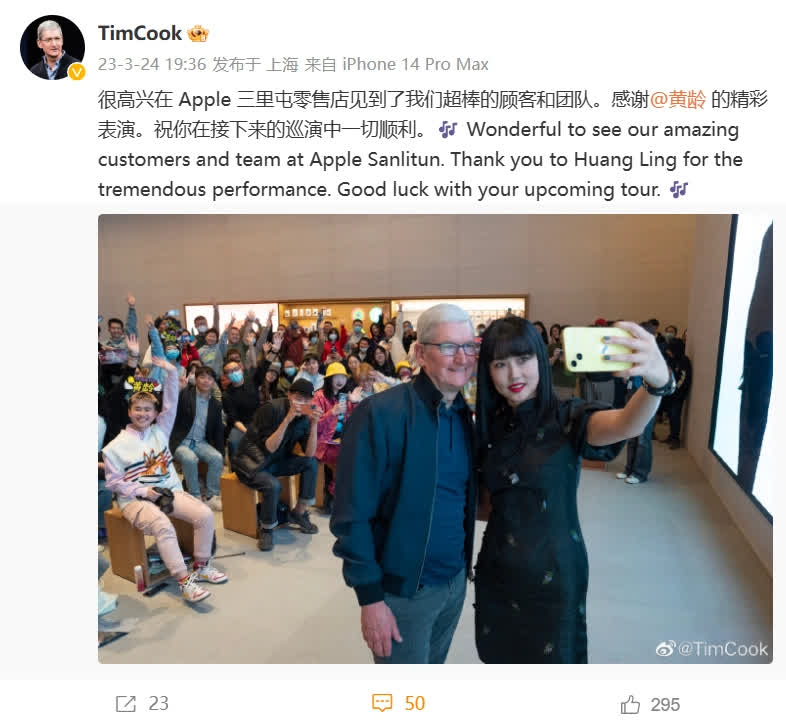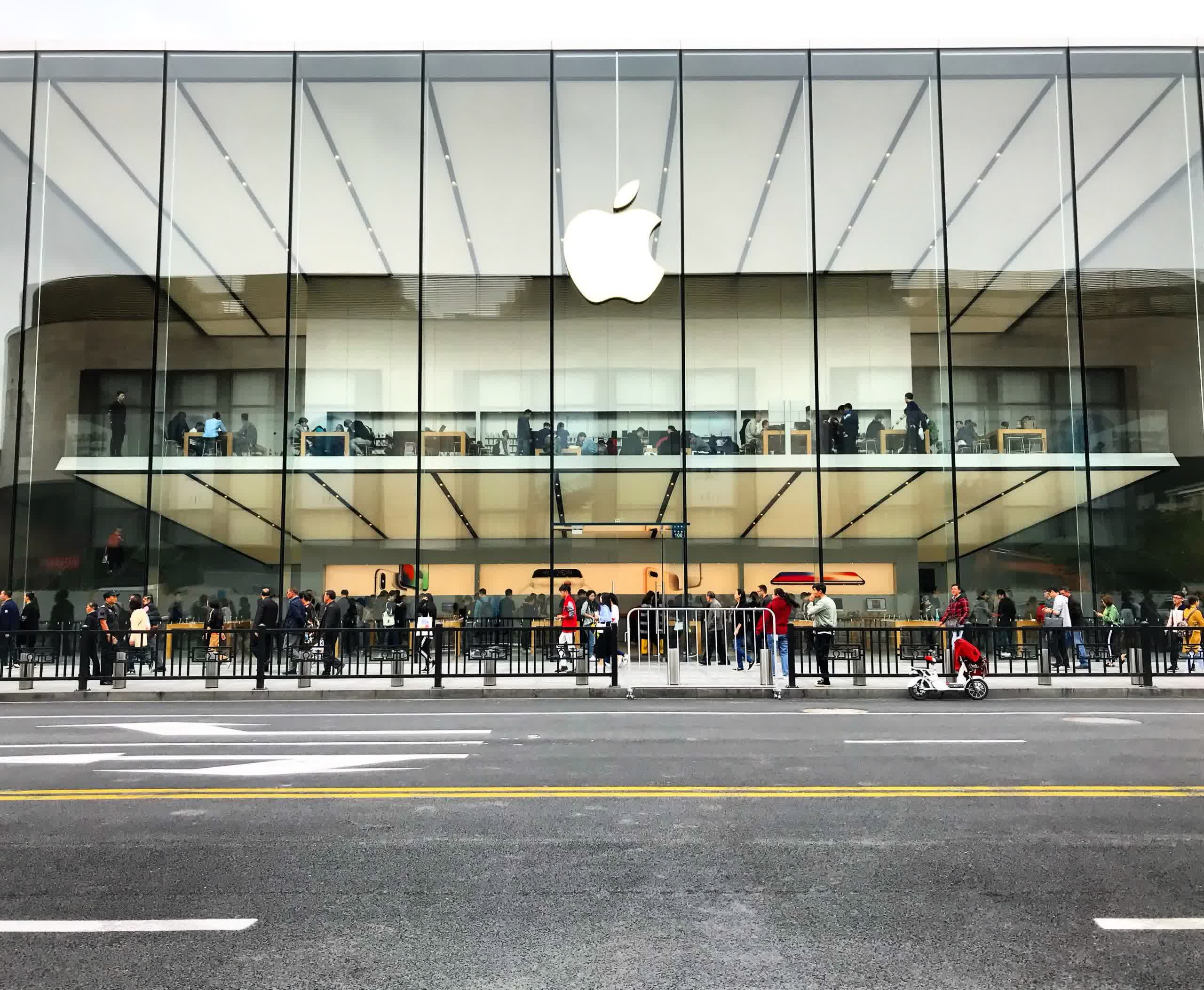In brief: Apple might be the biggest company in the world by market cap, but not everything goes Cupertino's way. The tech giant has had a difficult few weeks, and it looks like things aren't getting any better following news that iPhone sales have fallen 30% YoY in China during the first week of January.
Apple has long been one of the few western companies to maintain strong ties with China; CEO Tim Cook called the pair's relationship "symbiotic" last March. But Apple's presence in the Asian nation has suffered over the last few months.
In September, Apple shares fell following reports that China was preparing to expand a ban on the use of its devices beyond sensitive departments to government-backed agencies and state companies.
October brought more bad news for Apple, this time it was from data analyst companies GfK and IDC. It showed that the iPhone 15 hasn't been selling as well in China as its predecessor, with sales down 6% in its launch month compared with the prior year. The entirety of 2023 has seen Apple's market share in the country fall around 4% year-on-year, while local rival Huawei has seen its share rise 6%.

From one of Tim Cook's visits to China last year
The situation for Apple appears to be getting worse. Jefferies analysts (via CNBC) said iPhone sales in China were down a massive 30% during the first week of the year, while Xiaomi and Huawei have remained stronger with flat sales. The analysts believe iPhone volume will fall by double-digits in 2024. Jefferies previously said that Huawei's Mate 60 Pro has been outpacing the iPhone 15 in China.
It's not just China where Apple is facing problems right now. There's the legal battle it is fighting in the US over the Apple Watch Series 9 and Watch Ultra 2 that could see the devices permanently banned from sale due to a patent infringement. It could also be facing an antitrust lawsuit from the US government. Moreover, the company has seen its stock downgraded twice during the first week of January, by Barclays and Piper Sandler. Barclays, in its downgrade note, blamed "lackluster" iPhone 15 sales data from China for the move.
https://www.techspot.com/news/101443-iphone-sales-tumble-china-30-decrease-adds-apple.html
